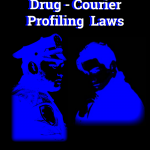In a recent case involving fraudulent activity and identity theft, an Arizona court denied a defendant’s appeal filed based on an error committed by the trial court. In the appeal, the defendant argued that the trial court committed an error so substantial that it biased the jury and gave her an unfair trial. The higher court disagreed, ultimately denying the defendant’s appeal.
The Facts of the Case
According to the opinion, the defendant was hired to take care of an elderly man who was not expected to live for much longer. Shortly after the defendant started caring for this man, the man’s wallet went missing. When the man died a few weeks later, his wife continued to employ the defendant as her own caretaker. The defendant was involved in many aspects of the elderly woman’s life, and she was thus given access to the woman’s home, incoming mail, checkbooks, and email.
The woman soon noticed several financial documents missing. She went to visit a bank and discovered that all of her accounts had been emptied. Soon, she learned that the defendant had used her credit card, rented a house for herself in the woman’s name, liquidated stocks belonging to the woman for herself, and used the woman’s bank account to pay various bills of her own. Law enforcement searched the defendant’s home and found significant evidence of this fraudulent activity. She was charged with fifty-six crimes against four victims; thirty-two of the counts related to this elderly woman and her husband. The defendant was sentenced to time in prison as a result of her convictions.
 Arizona Criminal Defense Attorney Blog
Arizona Criminal Defense Attorney Blog


